Problem Solving Skills
15 Sep 2022
By developing strong problem-solving skills, you’ll be able to find solutions even when they aren’t obvious.
During your studies, you’ll encounter many different problems you need to solve. Sometimes you may be unsure how to solve a problem or you may not fully understand what the problem is — which makes it hard to find the right solution.
When solving problems, it can help to start by identifying any barriers that may stop you finding a solution. Once you’ve identified any barriers, you can apply strategies to help overcome these and strengthen your problem-solving skills.
Barriers
Some common barriers include:
- a lack of experience or confidence in how to solve problems
- trouble identifying the knowledge required to solve the problem
- believing that if you don’t know how to solve the problem you shouldn’t bother trying
- waiting until you know what to do before starting to write down ideas
- going with the first solution you think of instead of coming up with different options
- trying to force a solution to work when it’s clear that it won’t.
Strategies
Once you know what barriers you’re facing, apply the following problem-solving strategies to identify and work through possible solutions:
Identify relevant knowledge
Review the concepts or theories discussed in your lectures and tutorials to see if any of the information is relevant to the problem. It can be helpful to build up a summary sheet of information you learn over the semester so you have a reference guide ready.
Try multiple solutions
There may be multiple solutions to a problem, and some may work better than others.
If you find the solution you’re trying doesn’t fit, you’ll to need to re-evaluate the problem and try other options. Remember if you make a mistake it doesn’t mean you’ve failed — mistakes can help guide you to the correct answer.
Try to:
- identify the most important points in the question you’re trying to solve and any factors that may influence the solution
- make a list of possible solutions
- use a process of elimination to select potential solutions.
Organise information
Try reviewing the knowledge you have prior to problem-solving and organising it into a table, flowchart or diagram. This can help you to:
- compare and analyse information
- identify any information gaps
- avoid being overloaded by irrelevant information.
Download a guide to organising information
Reframe the problem
Sometimes when thinking about a problem, you can make assumptions that stop you from finding a solution.
If you become stuck trying to solve a problem, it can help to approach the problem from a different perspective.
Some ways to help you reframe a problem include:
- questioning what the ‘actual’ problem is
- thinking about the cause of the problem
- identifying your assumptions
- creating a list of all possible solutions.

0 Comments
There are currently no comments, be the first to leave one